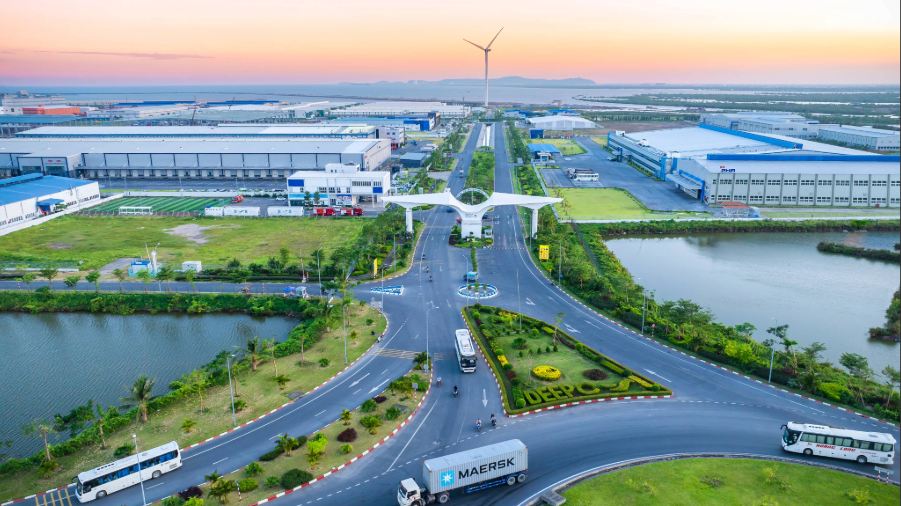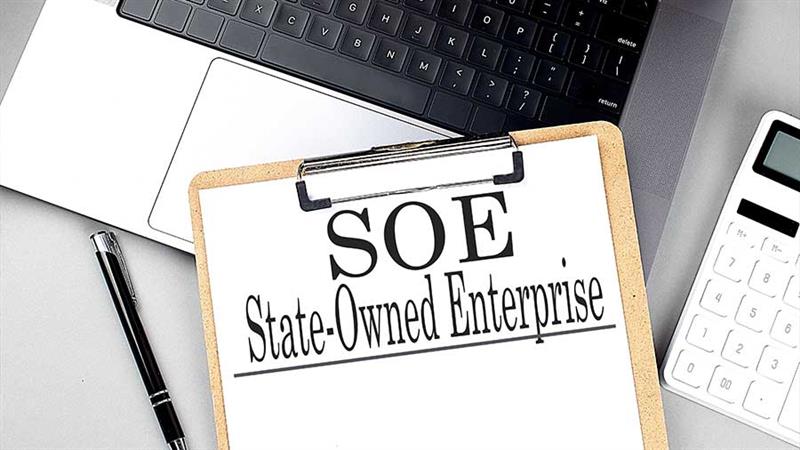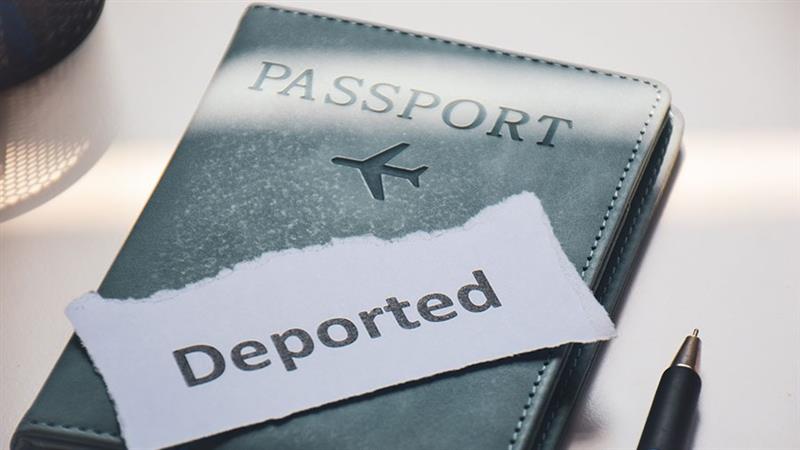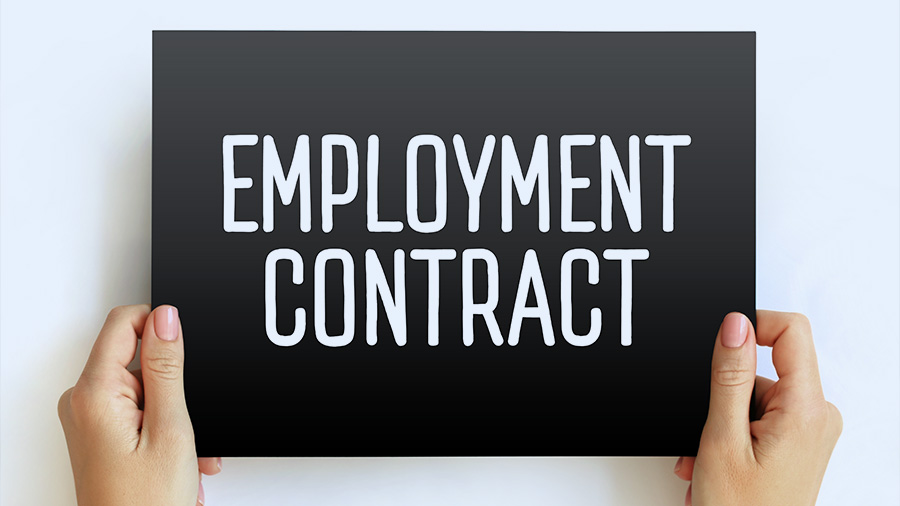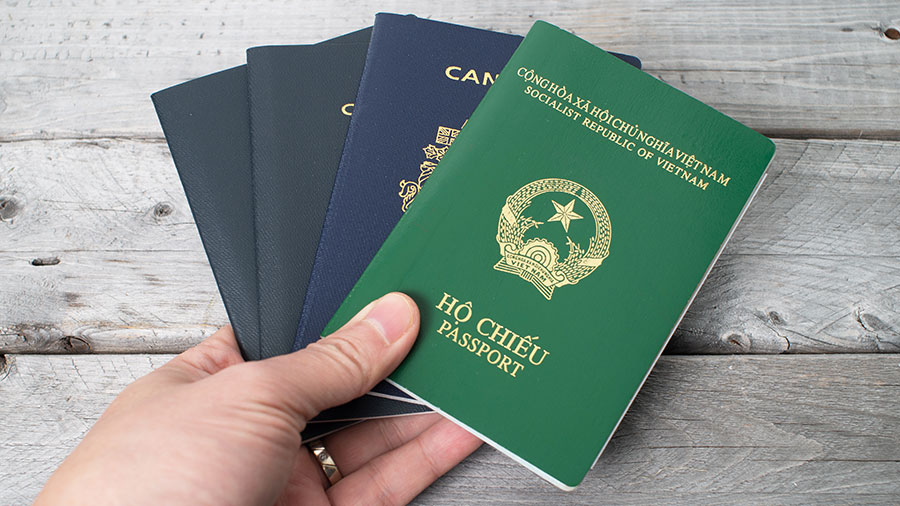Economy & Trade
Iran Conflict and Vietnam’s Economy: Early Impacts on Energy Costs, Logistics, and Export Supply Chains
03/02/2026Vietnam, though geographically distant from the Iran conflict, is likely to experience economic spillovers due to its ties to global energy markets and transportation networks.
US Supreme Court Blocks Trump's Tariffs: Implications for Vietnam–US Trade and Businesses
02/27/2026The US Supreme Court has ruled that reciprocal tariffs imposed under the IEEPA were unlawful, reshaping the legal framework underpinning recent US trade measures.
Vietnam’s Industrial Boom Has Outgrown the “One-Location” Investment Playbook
02/17/2026Vietnam’s manufacturing is increasingly regional – compare the north, central, and south to refine your 2026 investment strategy.
Hai Phong After Merger: A Pioneering Model in Northern Vietnam
02/16/2026Positioned as Vietnam's commerce gateway, Hai Phong is poised to lead changes in investment, logistics, and institutional reform in northern Vietnam.
Vietnam’s New Law on Rehabilitation and Bankruptcy: Aligning the Insolvency Framework with International Practice
02/12/2026Vietnam’s 2025 Law on Rehabilitation and Bankruptcy transforms its insolvency system by focusing on debtor-led rehabilitation with early intervention, court oversight, and structured creditor involvement.
Resolution 79: What Vietnam’s SOE Strategy Means for Private Businesses
02/09/2026Vietnam’s Resolution 79 positions state-owned enterprises as strategic anchors, reshaping opportunities for private-sector growth.
-
02/04/2026
Vietnam Suspends Effectiveness of Decree 46 on Food Safety
Vietnam Briefing -
02/02/2026
India-EU FTA vs. EVFTA: A Comparative Look at Their Strategic Impact on EU Business Expansion
Vietnam Briefing -
01/30/2026
Da Nang After Merger: A New Industrial and Investment Landscape
Vietnam Briefing -
01/29/2026
Green Transition in Vietnam’s Industrial Parks: Part 1 – Policy Foundations and Landscape
Vietnam Briefing -
01/22/2026
Vietnam Economic Performance in 2025: GDP, FDI, and Trade
Vietnam Briefing
Tax & Accounting
Vietnam’s VAT Refund: Expanded Eligibility and Stricter Compliance Rules
03/04/2026Explore Vietnam's regulations on VAT refund eligibility for investment and export-focused companies, as well as the strict compliance rules.
EU Adds Vietnam to its List of Non-Cooperative Jurisdictions: Tax and Compliance Implications
02/22/2026In February, the EU added Vietnam to its non-cooperative tax list following an OECD review, as part of its biannual assessment of tax transparency, fair taxation, and anti-BEPS compliance.
Understanding Vietnam’s Tax Regulations for Overseas Digital Service Providers
02/19/2026Understand Vietnam’s tax compliance rules for overseas digital suppliers, including registration, filing obligations, withholding rules, and treaty considerations.
Driving FDI Manufacturing Success in Vietnam with Microsoft Dynamics 365 Business Central
02/15/2026Discover how Microsoft Dynamics 365 Business Central helps foreign manufacturers in Vietnam ensure compliance, optimize supply chains, and scale operations efficiently.
Driving Vietnam’s Private Sector Growth: Core Incentives Introduced by Decree 20/2026
02/10/2026Vietnam’s Decree No. 20/2026/ND-CP outlines incentives for private-sector development, covering taxes, fees, land, and human resources.
Fraud Prevention and Investigation in Vietnam: Guidance for Foreign Investors
02/03/2026Vietnam’s fraud risks often stem from weak internal controls, excessive trust in local partners, or fast growth without adequate governance frameworks. Proactive fraud prevention and building transparent systems are essential to safeguarding operations.
-
01/28/2026
Preparing for Vietnam’s Special Consumption Tax Changes in 2026: Key Compliance Highlights
Vietnam Briefing -
01/27/2026
Vietnam Abolishes Business License Tax from 2026
Vietnam Briefing -
01/20/2026
Understanding Key Indirect and International Taxes in Vietnam
Vietnam Briefing -
01/09/2026
Understanding Functional Currency in Vietnam’s Accounting Regime
Vietnam Briefing -
01/05/2026
Administrative Penalties for Tax and Invoice Violations in Vietnam
Vietnam Briefing
Legal & Regulatory
Decree 29/2026: Vietnam Operationalizes its First Carbon Trading Market
03/03/2026Vietnam launched its first carbon trading exchange, establishing an operational framework and piloting GHG quota allocation for 2025–2026.
Managing Anti-Dumping Risk in Vietnam: Compliance, Market Access, and Strategic Planning
02/27/2026We review Vietnam's anti-dumping investigations, covering its landscape, sector exposure, exporter implications, compliance responsibilities, and the investigation process.
Navigating Vietnam’s New Deportation Rules: What Foreigners Should Know
02/25/2026An overview of Vietnam’s new deportation rules under Decree 59/2026/ND-CP and their implications for foreign nationals.
Breakthroughs in Vietnam's 2026 Education Regulations: Implications for FDI
02/24/2026Vietnam is poised for a transformative shift in its education sector with the groundbreaking amendments to its education laws, which not only enhance regulatory frameworks but also catalyze foreign direct investment (FDI)
Vietnam’s Cybersecurity and Data Protection Rules: A Compliance Roadmap for Businesses
02/16/2026As Vietnam’s digital economy grows, businesses must navigate cybersecurity and data protection rules to stay compliant and maintain customer trust.
Driving Vietnam’s Private Sector Growth: Core Incentives Introduced by Decree 20/2026
02/10/2026Vietnam’s Decree No. 20/2026/ND-CP outlines incentives for private-sector development, covering taxes, fees, land, and human resources.
-
02/06/2026
Vietnam Briefing
-
02/04/2026
Vietnam Suspends Effectiveness of Decree 46 on Food Safety
Vietnam Briefing -
02/04/2026
Vietnam’s Regulatory Updates in February 2026: New Customs, Administrative, and Enforcement Rules
Vietnam Briefing -
01/26/2026
Vietnam's Personal Data Protection: Key Requirements under Decree 356
Vietnam Briefing -
01/23/2026
Vietnam Introduces Motorcycle Emission Standards amid Nationwide Air-Quality Reforms
Vietnam Briefing
Industries
Decree 29/2026: Vietnam Operationalizes its First Carbon Trading Market
03/03/2026Vietnam launched its first carbon trading exchange, establishing an operational framework and piloting GHG quota allocation for 2025–2026.
Digital Marketing Services in Vietnam: A 2026 Market Overview
02/24/2026Digital marketing services in Vietnam are rapidly evolving into essential components of business growth strategies for foreign-invested companies.
Breakthroughs in Vietnam's 2026 Education Regulations: Implications for FDI
02/24/2026Vietnam is poised for a transformative shift in its education sector with the groundbreaking amendments to its education laws, which not only enhance regulatory frameworks but also catalyze foreign direct investment (FDI)
Driving FDI Manufacturing Success in Vietnam with Microsoft Dynamics 365 Business Central
02/15/2026Discover how Microsoft Dynamics 365 Business Central helps foreign manufacturers in Vietnam ensure compliance, optimize supply chains, and scale operations efficiently.
Vietnam Manufacturing Tracker: As of February 2026
02/11/2026The Vietnam Manufacturing Tracker by Vietnam Briefing provides the latest data, policy updates, FDI trends, industrial production indicators, and export performance insights to help investors monitor Vietnam’s fast-evolving manufacturing landscape.
The Green Transition in Vietnam’s Industrial Parks: Part 2 – Implementation, Energy, and Circular Models
02/06/2026This article focuses on the practical mechanisms by which industrial parks reduce emissions, improve resource efficiency, and strengthen competitiveness.
-
01/30/2026
Da Nang After Merger: A New Industrial and Investment Landscape
Vietnam Briefing -
01/29/2026
Green Transition in Vietnam’s Industrial Parks: Part 1 – Policy Foundations and Landscape
Vietnam Briefing -
01/23/2026
Vietnam Introduces Motorcycle Emission Standards amid Nationwide Air-Quality Reforms
Vietnam Briefing -
01/14/2026
Investing in Vietnam’s Resort Sector: Market Overview and Outlook
Vietnam Briefing -
01/13/2026
Vietnam: A Rising Manufacturing Hub in Asia in 2026
Vietnam Briefing
HR & Payroll
Navigating Vietnam’s New Deportation Rules: What Foreigners Should Know
02/25/2026An overview of Vietnam’s new deportation rules under Decree 59/2026/ND-CP and their implications for foreign nationals.
Vietnam's Personal Data Protection: Key Requirements under Decree 356
01/26/2026Vietnam's personal data protection rules have tightened under Decree 356. Learn about new compliance duties for businesses operating in Vietnam.
2026 Vietnam Public Holiday Schedule: Vietnam Culture Day Added as New Public Holiday
01/13/2026November 24 has been officially designated as Vietnam Culture Day and recognized as an annual public holiday.
Vietnam Mandates Centralized Electronic Labor Contracts from July 2026: Key Requirements under Decree 337
12/31/2025From July 1, 2026, Vietnam’s government mandates that all electronic labor contracts must be digitally managed on a centralized platform.
Vietnam Amends Personal Income Tax Law: Key Highlights and Business Implications
12/10/2025Vietnam’s National Assembly approves the amended Law on Personal Income Tax, aiming to broaden the tax base while lowering inequality.
Vietnam E-Visa: A Complete Guide
12/09/2025Vietnam’s e-visa program makes it easier and faster for visitors to Vietnam to enter the country. The country has recently added 41 new ports that accept e-visas for entry, bringing the total to 83.
-
11/27/2025
Typhoon Koto Update: Current Status, Forecasts, and Preparedness Measures
Vietnam Briefing -
11/24/2025
Strategic Approaches to HR and Payroll Management in Vietnam
Vietnam Briefing -
11/19/2025
Enforcing Vietnam's Social Insurance Law: New Measures on Late Payments and Evasion
Vietnam Briefing -
11/11/2025
Vietnam’s Regional Minimum Wage Effective from January 1, 2026
Vietnam Briefing -
09/10/2025
Hanoi Issues Guidance on Work Permit Procedures for Foreign Employees
Vietnam Briefing
 Our firm Dezan Shira & Associates provides legal, tax and operational advisory across Asia.
Our firm Dezan Shira & Associates provides legal, tax and operational advisory across Asia. 






